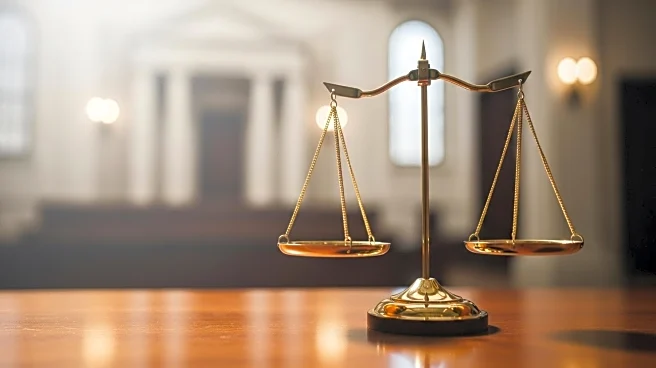What is the story about?
What's Happening?
Former French President Nicolas Sarkozy has been sentenced to five years in prison following his conviction for criminal conspiracy related to his 2007 presidential campaign. The court found that Sarkozy engaged in a scheme to finance his campaign using funds from Libya in exchange for diplomatic favors. Despite his intention to appeal the conviction, Sarkozy is expected to serve time in La Santé prison in Paris, potentially in solitary confinement or the 'VIP wing' reserved for high-profile inmates. This wing is designed for prisoners who require separation from the general population due to safety concerns.
Why It's Important?
Sarkozy's conviction and imprisonment mark a significant moment in French politics, highlighting issues of corruption and the influence of foreign money in political campaigns. The case underscores the legal and ethical challenges faced by political figures and the importance of transparency in campaign financing. Sarkozy's imprisonment may impact public trust in political institutions and could influence future regulations on campaign finance. The case also serves as a reminder of the legal accountability that political leaders face, regardless of their status.
What's Next?
Sarkozy plans to appeal his conviction, which could lead to a prolonged legal battle. The appeal process may bring further scrutiny to the case and potentially alter the outcome of his imprisonment. Meanwhile, Sarkozy's time in prison is likely to attract significant media attention, given his status as a former president. The situation may also prompt discussions on the treatment of high-profile prisoners and the conditions within the French penal system.
Beyond the Headlines
Sarkozy's imprisonment raises broader questions about the intersection of politics and justice. It highlights the potential for political figures to face consequences for actions taken during their tenure, emphasizing the role of the judiciary in maintaining accountability. The case may also influence public perceptions of political integrity and the importance of ethical conduct in leadership roles.
















